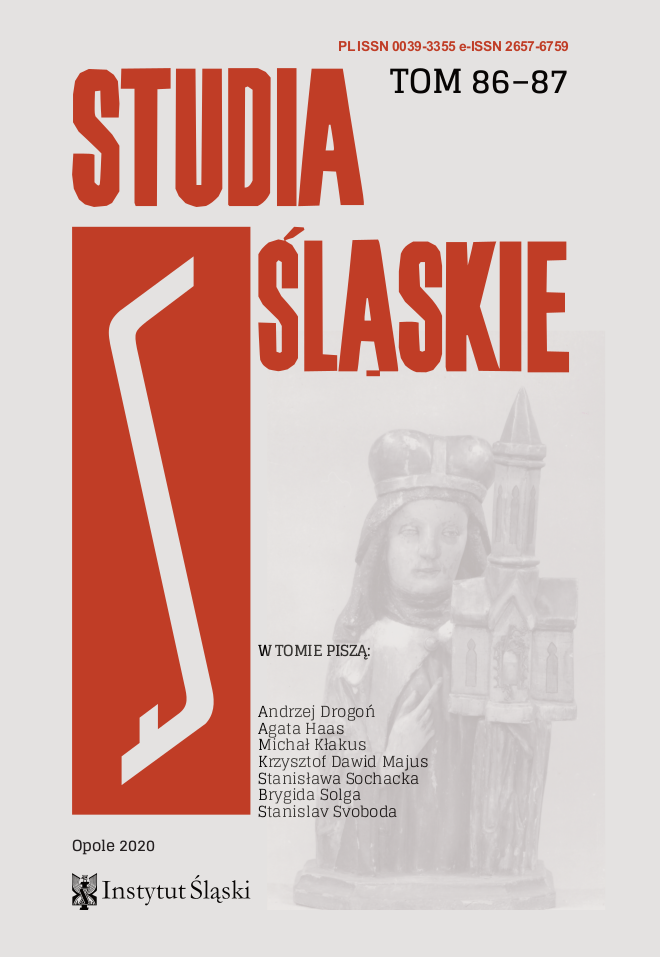Osobliwe modlitwy w "Doskonałym kancyonale polskim" z 1673 roku
Peculiar prayers of “Doskonały kancyonał polski” (“The Perfect Polish Cantional”) from 1673
Author(s): Agata HaasSubject(s): History, Language and Literature Studies, Essay|Book Review |Scientific Life, Geography, Regional studies, Theology and Religion
Published by: Instytut Śląski
Keywords: cantional; Protestantism; prayer; Silesian Polish; 17th century
Summary/Abstract: Doskonały kancyonał polski (The Perfect Polish Cantional), a Protestant collection of songs and prayers containing Martin Luther's catechism was published in 1673. The cantional became very popular in Silesian Protestant circles; thus, it was reprinted repeatedly in the following years. It was prepared for printing by five pastors from Wrocław with a primary purpose to accompany its readers throughout the whole liturgical year, various holidays, rituals and important – sometimes difficult – moments. The popularity of the cantional lied in its content, especially in various songs and prayers, prepared in a way to be suitable for all circumstances. The article analyzes selected prayers from the series entitled: “Modlitwy nabożne, każdemu w rożnych Przygodach służące” (“Holy prayers serving everyone on various occasions”). These prayers can be described as adventurous, referring to human problems and everyday experiences. The language of individual prayers has been examined, as well as the frame of these texts. The following elements have been discussed in detail: the initial and the final components; the categories of the speaker and the addressee; the nominations of the addressees of requests; selected means of poetic expression, such as apostrophes and metaphors, as well as the functions they perform. The attention was also paid to numerous descriptions which are not components of an apostrophe. Individual requests included in the prayers analyzed were also discussed, as those components determine the internal structure of the text and constitute its key element. Rich vocabulary and an abundance of expressive forms affect the poetic expression of the occasional prayers in question. The texts become sophisticated dialogues between the speaker and the addressee, filled with emotion, zeal, commitment and authenticity of statements. The poetic nature of these works is evidenced by unusual, original metaphors and numerous comparisons. The peculiar prayers discussed in the article, intended to be used at specific moments in the life of every Christian, are a valuable specimen of religious literature in the Polish language of the 17th-century Silesia.
Journal: Studia Śląskie
- Issue Year: 2020
- Issue No: 86-87
- Page Range: 41-57
- Page Count: 17
- Language: Polish

